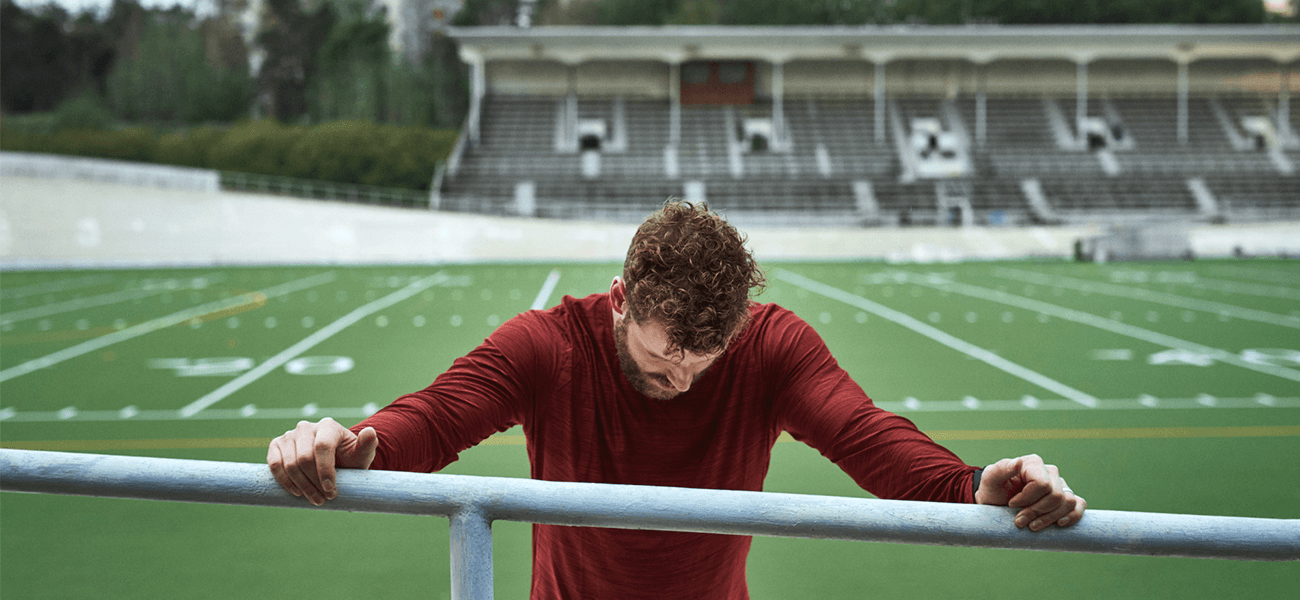Right in the middle of 2021’s Tokyo Olympics, world champion gymnast, Simon Biles, made the bravest move of her career: she removed herself from her team’s final competition. She cited her mental health as the reason, saying, “I have to do what’s right for me and focus on my mental health.”
Just a few weeks before, another Olympic athlete, Sha’Carri Richardson was disqualified after she used cannabis to help manage her anxiety and stress. Michael Phelps, who has 23 Olympic Gold Medals, has recently shared his mental health struggles and Japanese-American tennis athlete Naomi Osaka famously pulled out of the French Open to protect her mental health.
Increasingly, Olympians and other professional athletes have started to talk openly about their struggles with mental health. While Professional athletes face unique mental health struggles, they are not alone. By speaking out about them, Biles and athletes like her have started to break the shackles of stigma that keep athletes from getting the treatment and support they need.
How are professional athletes affected by mental health struggles? Some athlete mental health statistics
Although Biles was one of the first professional athletes to openly talk about her mental health, scientific research shows that she’s far from alone in her struggles. Studies have found that over a third of professional athletes suffer from at least one mental health crisis; one report states that nearly 60% of the athletes they studied had at least one mental health problem.
Often, mental health crises for athletes manifest as:
- Eating disorders
- High stress and burnout
- Depression
- Anxiety
- Substance use disorder
Mental health disorders aren’t exclusive to the athletic community; over 50 million people struggle with a mental illness in the United States alone. And none of those people have it easy; although mental health awareness has come a long way, stigma still prevents many people from seeking the help they need.
But the stigma against having a mental health problem may be even worse for athletes. One study found that only 10% of college athletes with a mental health problem sought help for it, while 30% of the general student population with a mental health problem did. Society looks to athletes as the picture of strength, grace, and invincibility; often, that image doesn’t leave enough room for athletes to be honest about their struggles.
What causes poor mental health in Olympic athletes?
For Olympic athletes specifically, there are several different factors that lead to mental health struggles. Some of the most common causes include:
- Fierce competition and pressure. For many Olympic athletes, the games are the culmination of years of training and competition. This puts an extreme amount of pressure on each athlete to perform well, which can lead to stress and anxiety. And athletes don’t get a break from this pressure; after one competition ends, the next one begins.
- Stigma. The fact that all-star athletes like Biles and Phelps have started to become open about their mental health struggles is encouraging. But, again, the stigma against having mental health problems in the world of sports is still very real.
Especially in sports that are seen as more “masculine,” athletes may still feel fear and shame about having problems with their mental health. They may worry that teammates and fans will think of them as “weak” or “insecure”. - Lack of sleep. Both the mental pressure and long training hours and travel to different time zones can lead to athletes’ sleep schedule. A lack of regular, restful sleep has been shown to worsen mental health.
- Fear of injury. No matter what sport they compete in, most athletes are only one injury away from the end of their careers. They may also have a legitimate fear of death caused by a serious injury.
- Social media and being in the public eye. Professional athletes are constantly in the spotlight, especially during Olympic season. In many cases, they have the attention of the whole country they’re representing, and if they’re medalists, the entire world.
As Biles explained, “People have no idea what is going on behind the scenes, and just judge us from our social media. You guys have no idea what we are going through.” - The post-Olympic slump. Phelps was candid about his suicidal thoughts that appeared after his impressive success at the 2012 Olympics. For many athletes, the Olympics become the center of their lives for years. When everything they’ve been working so hard for comes to an end, they can feel aimless and empty, resulting in suicidal thoughts and feelings.
And, for the Tokyo Olympics, the Covid-19 pandemic. Training through the uncertainty of the pandemic for the 2020 Olympics (which were postponed for one year) brought on an additional layer of stress for many athletes. On top of that, traveling during the pandemic, and being at the Olympic games without the presence of friends and family, made this year’s Olympics more stressful than ever.
How to protect mental health in athletes
If you’re an athlete and are struggling with your mental health, know that you’re not alone. Elite athletes are human, too 一 and they have unique mental health challenges, a fact that the world of sports is finally beginning to acknowledge.
For the first time ever, the U.S. Olympic and Paralympic Committee hired a director of mental health to specifically address mental health in athletes. This is a fantastic first start, but elite athletes would benefit from focusing on their mental health long before each Olympics season.
To take care of your mental health and wellbeing both during and outside of your sports season, try these three key things.
Reach out for support
When you feel the stress and pressure of the sport getting to you, don’t be afraid to reach out to your teammates, your coach, or anyone else you trust. Keeping your emotions bottled up inside will only give them more power. Emotions are human, and it’s okay to be human.
Who do you feel safe with? Who do you have in your life who supports you emotionally, regardless of your medals and prizes? Everybody, including the strongest athletes in the world, needs a shoulder to cry on sometimes.
Practice self-care
Second, make sure to practice basic self-care, like sleeping, eating well, and relaxing. Not getting enough restful sleep every night worsens mental health symptoms. Eating healthy food will not only improve your athletic performance, but can have a positive effect on your mood, too.
And relaxation through self-care is a skill that can be learned 一 and can go a long way in counteracting the negative effects of chronic stress on your body. Many athletes learn mindfulness and breathing techniques to bring down their stress levels and get in the zone.
Talk to a professional mental health provider
Many professional athletes, including Biles, work with a mental health therapist. Therapists can give you a safe, nonjudgmental place to explore your feelings and experiences. They can also help you work through any challenges that you’re facing and teach you coping skills to get through symptoms of depression and anxiety.
If it’s possible, you may want to consider working with a therapist who has a background in sports psychology or who is experienced in treating elite professional athletes.
TMS for athletes
TMS is an ideal treatment for depression in any athlete. It works rapidly – in just six weeks – making it a great choice for athletes who have limited time.
No medication is introduced into the body and therefore there are no disturbing side effects such as dizziness, confusion, coordination difficulties or other problems. And because there is no medication, there is no problem with necessary drug monitoring or violations of banned substance regulations.
The improvements seen with TMS are enduring and last on average two years without need for retreatment. All of these benefits are important for athletes of any level of participation. To schedule an intake appointment, contact us today.






